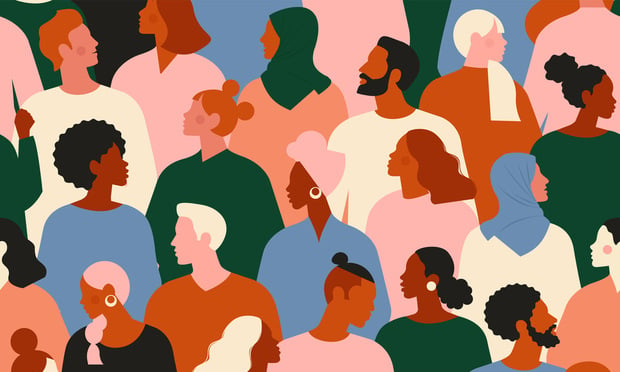 October is National Disability Employment Awareness Month, which sheds light on the importance of ensuring that people with disabilities have full and equal access to employment opportunities. (Photo: Shutterstock)
October is National Disability Employment Awareness Month, which sheds light on the importance of ensuring that people with disabilities have full and equal access to employment opportunities. (Photo: Shutterstock)
When it comes to diversity, equity and inclusion initiatives, the disabled community – particularly those with unseen disabilities like autism – is often left out of the conversation. In fact, while a vast majority of companies claim to prioritize diversity, only 4% consider disability in their initiatives. Not only is the disabled community equally important and deserving of more representation in the workforce, but there is a clear business case for hiring neurodivergent candidates in particular.
 Andy Valenzuela is the chief human resources officer at HireVue. He is responsible for leading the People Success team, as well as the Information Technology team. He oversees the strategy and execution of all HR functions, including culture initiatives, benefits programs and diversity and inclusion. Andy is also responsible for the oversight of all operations that involved the development and support of information systems and employee experience.
Andy Valenzuela is the chief human resources officer at HireVue. He is responsible for leading the People Success team, as well as the Information Technology team. He oversees the strategy and execution of all HR functions, including culture initiatives, benefits programs and diversity and inclusion. Andy is also responsible for the oversight of all operations that involved the development and support of information systems and employee experience. Thirty-five percent of autistic individuals go on to college, yet the unemployment or underemployment rate for those graduates is between 75-85%. Those who are lucky enough to find employment often settle for part-time, minimum wage positions. Too often, their skills go unutilized, and the community is overlooked for positions they would do very well in.
Recommended For You
In fact, autistic adults often have many skills and characteristics that make them very successful in the workplace, including excellent rote memory – recalling factual information or data, being extremely focused, creative and attentive to detail, abiding by set rules and routines and being incredibly loyal and honest.
October is National Disability Employment Awareness Month, which sheds light on the importance of ensuring that people with disabilities have full and equal access to employment opportunities. As employers begin to realize the untapped potential of neurodivergent employees, and in support of this movement, we have compiled some hiring best practices with the help of our partner, Integrate Autism Employment Advisors, particularly around virtual interviewing.
Incorporate structured interviews
Structured interviews are one of the best determinants of future job performance, but currently, a majority of interviews are inconsistent, with questions made up on the fly by the interviewer and having little to do with the job itself. By asking all candidates the same questions in the same manner and assessing their responses based on the same job-related criteria, structured interviews give candidates a more equitable opportunity to demonstrate their qualifications.
For neurodivergent candidates especially, it's important that the questions are directly tied to job responsibilities, not hypothetical or abstract. For example, ask candidates to describe a specific challenge that might come up in the role and have them identify the steps they would take to address it.
Provide prep materials
Neurodivergent candidates often experience increased anxiety in new and unfamiliar situations, above and beyond that of their neurotypical peers, so hiring managers should provide a preview of the interview process and detailed instructions so the candidate can put their best foot forward. Along the same thread, sharing your questions prior to the interview can help reduce anxiety and enable them to answer questions in a more comfortable manner.
Showcase your organization's commitment to diversity
Make it clear to candidates that your organization and leadership are committed to diversity, equity and inclusion to establish trust and make them feel welcome and included. For example, you can include a message from your CEO referring to DEI in your interview process and should use inclusive language in your job postings. According to The Science of Diversity and Inclusion Initiative (SODI), "Direct messaging from senior leadership that diversity is critical signals to underrepresented groups that they are valued, while generic Equal Employment Opportunity statements can actually backfire because they signal tokenism."
Offer necessary accommodations
Neurodivergent candidates may require additional assistance and time, so hiring managers should provide a point of contact in case candidates need further explanation or technical assistance during the application and interview processes. Additionally, if possible, hiring managers should avoid enforcing a time limit for the interview.
As DEI initiatives continue to evolve, organizations would be remiss not to prioritize a focus on disabilities, and even more remiss to not make hiring efforts more inclusive of those with disabilities, especially neurodivergent candidates. After all, many of the largest companies in the world have already begun prioritizing neurodiverse talent, and are seeing "productivity gains, quality improvement, boosts in innovative capabilities and increased employee engagement as a result," according to Harvard Business Review.
Read more:






